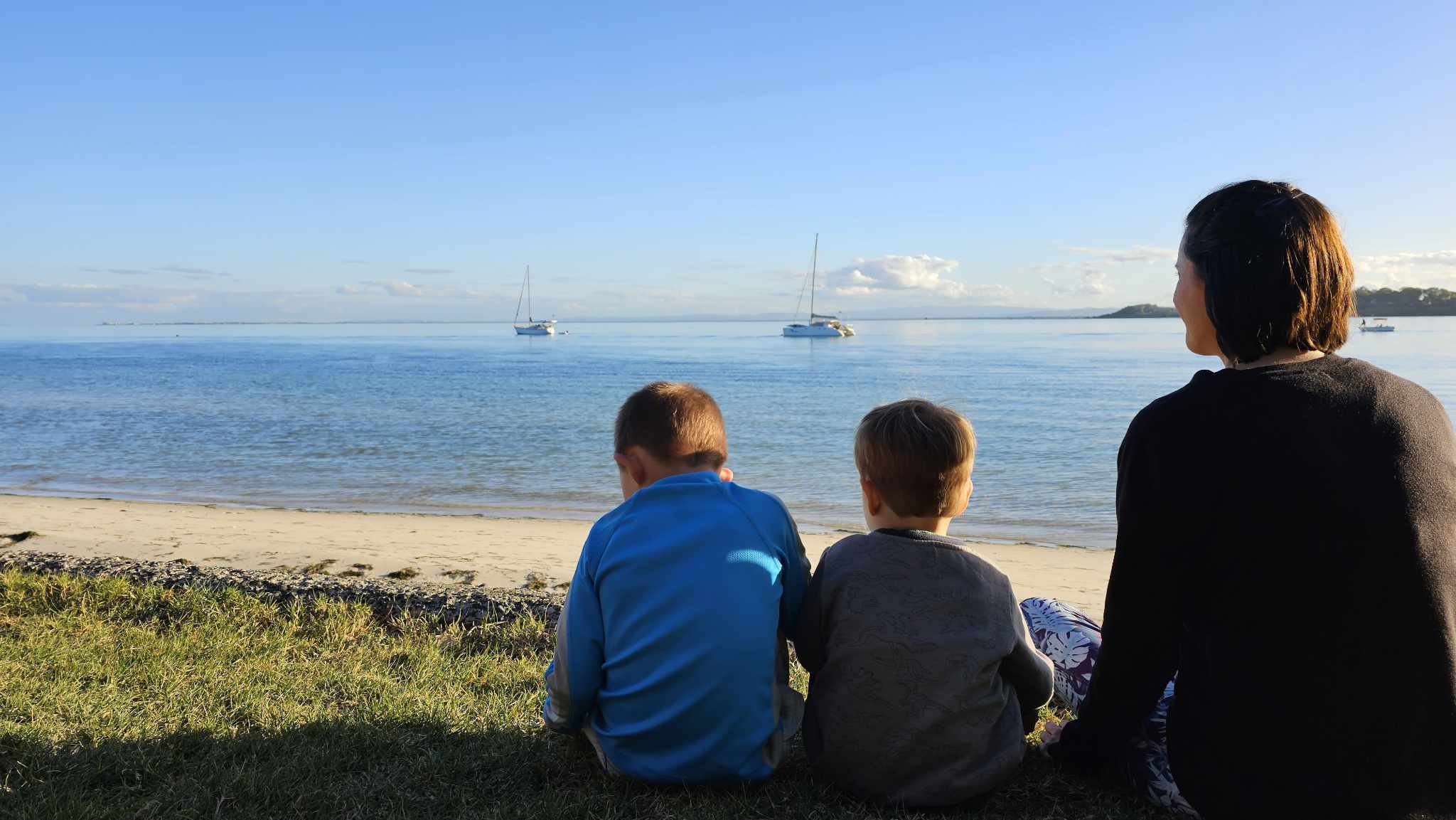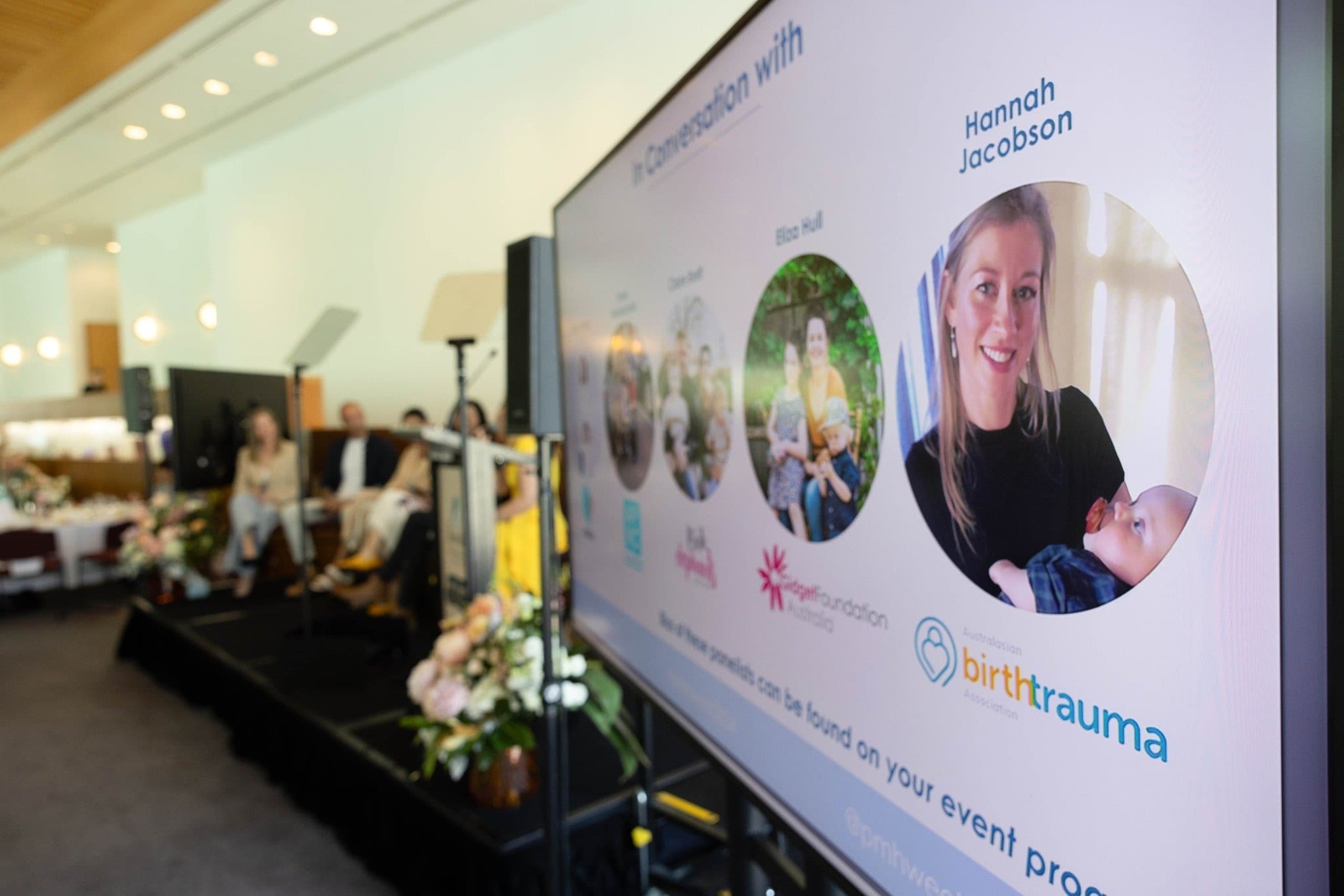Trigger Warning: This birth story involves birth related PTSD, postnatal depressions, forceps delivery and fistula. If you are triggered by these topics you may wish to skip this blog or read it once you have support available. If you are seeking support for your birth trauma, you may wish to contact our Peer Support Service.
Birth trauma and birth injury is not spoken about enough. While it can be a difficult topic to discuss, it is an important one that needs more attention. That’s why when I was asked by Amy to share my story, I didn’t hesitate to say yes.
My journey through my physical and psychological birth trauma occurred during the birth of my son. In 2015, I was fortunate to have a beautiful pregnancy and although I was induced, most of my birth experience was a positive one. It wasn’t until the last part of his birth where things started to take a turn thus leaving a shadow cast over my birth experience.
My son ended up being posterior and was having a hard time disengaging from my pelvis. We were told his heart rate was dropping and he needed to come out. Everything started to happen quickly and before I knew it, things went from a calm peaceful birth to an episiotomy, forceps delivery, and a retracted placenta. This resulted in a serious haemorrhage , emergency surgery to remove the placenta, and a 3c tear.
Birth itself is a physical and psychological transformation unlike any other. However, adding birth trauma into the mix added more complexity to the transformation. After a few weeks postpartum, I noticed a hole in my perineum and spent a majority of the first few months with my newborn seeing multiple doctors and specialists. I was told I had a fistula (in my case, an abnormal hole that formed from the rectum to the premium). After researching fistula, I got another opinion by a colorectal surgeon who said she didn’t feel it was a fistula and that my body needed more time to heal after all it had been through. A month after that appointment (5 months total with the mysterious hole), it closed up naturally and healed. That doctor was right. My body needed to be left alone to heal.
Due to the physical nature of my birth trauma and caring for my baby, I neglected the emotional side of this experience and shortly after healing, came the anxiety, depression, and obsessive thoughts. I then went through a long battle with postnatal anxiety, depression and OCD. As a mental health clinician, this was a difficult journey as I felt I should’ve recognised the symptoms sooner. I quickly realised the trauma I experienced was never adequately addressed, and it wasn’t my fault for not recognizing this sooner. Perinatal mental health issues don’t discriminate, and it can happen to anyone. It’s been almost five years on my journey to healing, and I’m in a great place now.
My birth experience motivated me to study as a birth and postpartum doula, which I now incorporate into my counselling services as a “The Mental Health Doula.” In this role, I assist birthing families through the mental, emotional, and spiritual aspects of birth and postpartum.
For those of us who’ve experienced birth trauma, it’s not hard to understand why we may experience higher rates of postpartum depression, anxiety PTSD and/or other mental health issues. Without adequate support, how is any new mum expected to care for a new baby 24/7 while also recovering from, and learning to look after, an injury? If a birthing person experienced any other type of accident, injury, or surgery, the aftercare most likely would look very different. A longer stay at the hospital, follow up care from their GP, or specialists, perhaps in home physio, OT, rehab, counselling or nursing support to check on their recovery.
Suffering a birth injury and birth trauma can be a lonely experience and rarely mentioned. It’s not usually the type of thing you discuss in your mother’s groups or with family and friends. If birthing people are embarrassed or do not feel safe to speak about their trauma, where are they going for support? Many birthing people wait years before they finally seek support, which can result in chronic physical and emotional pain and suffering.
If you’re a birthing person reading this who has experienced injuries related to birth, be gentle with yourself. You’re not only learning to care for your baby, but also recovering and learning to care for your physical and emotional injuries. There are people and amazing organisations like the Australian Birth Trauma Association that can help. While it can be difficult to reach out for support, once you do, your journey toward physical and emotional healing can begin.
About Stefanie
Stefanie Poole, “The Mental Health Doula” is a counsellor, doula, educator and mum on a mission to change the way we view mental health. She combines her extensive professional and personal mental health experience from both Australia and the USA to bring families innovative and holistic pregnancy, birth and postpartum support and training programs. She is based on the Mornington Peninsula, in Victoria Australia. You can find out more about Stefanie and her services at www.stefaniepoole.com or follow her on Instagram @the_stefanie_poole
If you would like to connect with a mum who has experienced birth trauma, please contact our Peer2Peer Support service to connect with one of our Peer Mentors.





One Response
Only those who have experienced this kind of trauma can appreciate what it does to your mind and body. You have explained this very well. 38 years after the birth of my daughter not a day goes by when I don’t think of that horrific experience. 16 hours of labour with hardly any pain relief whilst i begged for an epidural and a forceps delivery carried out with a lot of force – my husband told me later. Living with the physical and mental consequences of it now. This incident feels like it never ages- so fresh in my memory – like a horror movie with many still photos embedded in my mind. So glad about the wonderful work being done by abta to shed light on what happens to mother’s and for courageous people like you who help others to not feel so alone by sharing their stories. Thank you.